Art & Exhibitions
The Short List for MoMA PS1’s Young Architects Program Is Out
Five emerging architects will vie for the courtyard installation.
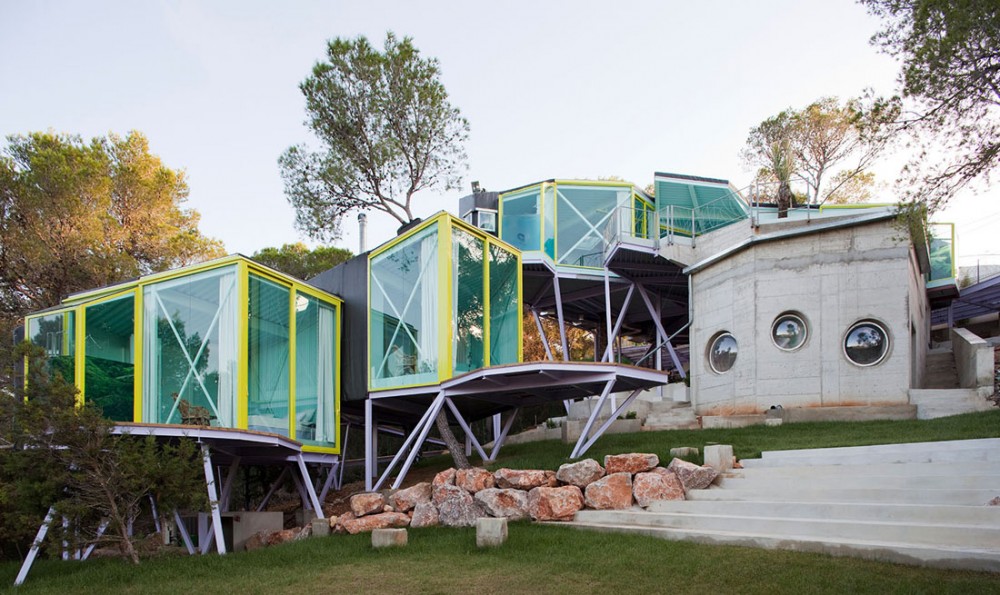
Five emerging architects will vie for the courtyard installation.

Sarah Cascone

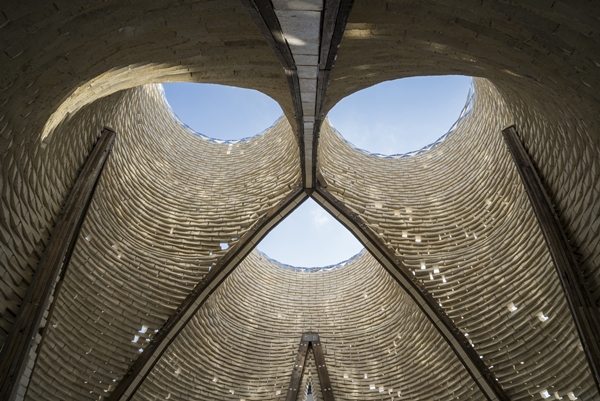
Installation view of The Living’s Hy-Fi, the winning project of The Museum of Modern Art and MoMA PS1’s 2014 Young Architects Program. June 27-September 7, 2014.
Photo: Kris Graves.
MoMA PS1 has announced a short-list of five emerging architects who will compete for the 2015 edition of its annual Young Architects Program (YAP). The winning proposal will be built this summer, reports DesignBoom, an innovative structure erected in the museum’s outdoor courtyard, also home to the popular summer concert series, “Warm Up,” which features experimental music, live bands, and DJs.
Co-sponsored by the Museum of Modern Art and PS1, YAP, established in 2000, creates an outdoor recreation space to be enjoyed by museum visitors. Last year, the courtyard played host to Hy-Fi, a giant, biodegradable tower of three curving cylinders made of corn and mushroom bricks, designed by New York-based architects the Living (see “Giant Mushroom Tower Sprouts at MoMA PS1“).
This year’s shortlisted architects are as follows:

Andres Jaque, House in Never Never Land.
Photo: Miguel de Guzman.
Andres Jaque, Office for Political Innovation, New York and Madrid
Seeking to make architecture that reflects the diversity of ever day life, Office for Political Innovation is inspired by the role that politics plays in community and socialization. Specifically, Jaque’s work seeks to offer a solution to the problems created by the pre-2008 housing market, offering spaces that allow for negotiations and political activity.
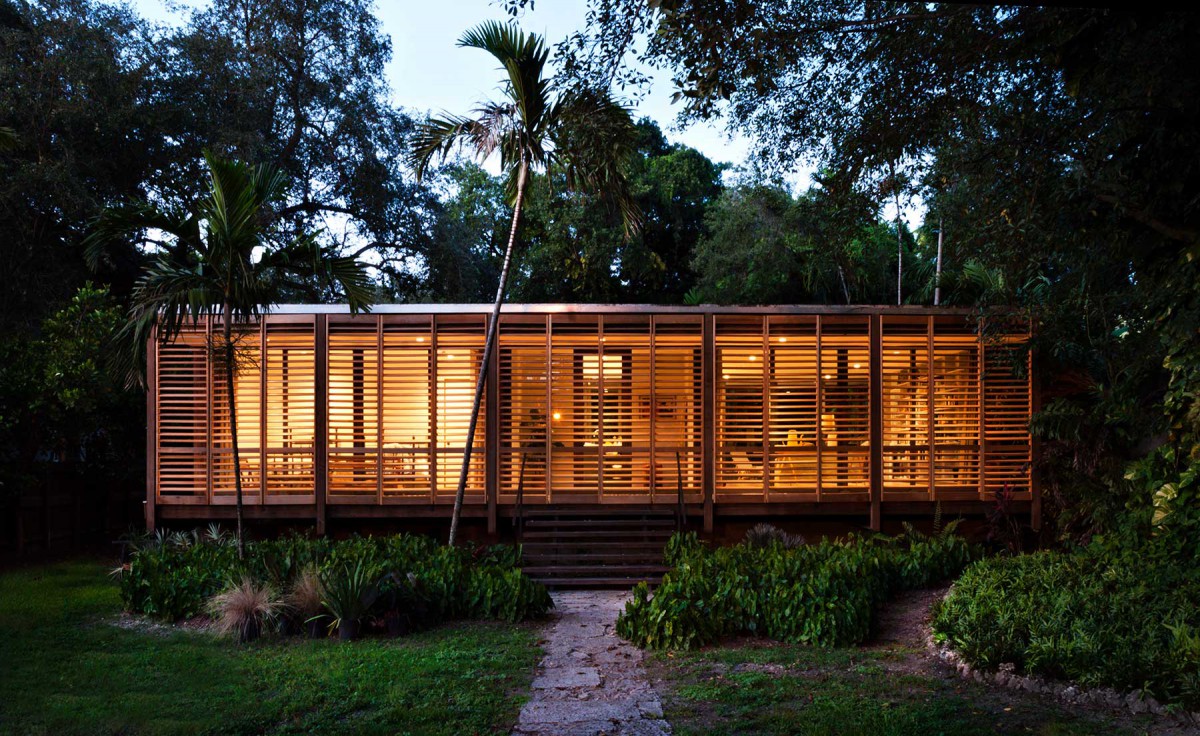
Brillhart House.
Photo: Brillhart.
brillhart architecture, Miami
Often inspired by old models, brillhart incorporates new materials and fabrication methods into classically-influenced designs. Their back-to-basics approach allows the design process to serve as a springboard for creativity and invention. The firm’s designs tend to reflect their Miami home, with a number of beachfront projects, and one restaurant vision that would perch above the Everglades.
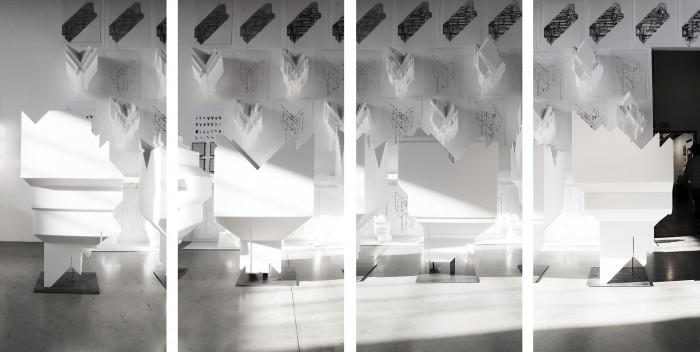
Erin Belser, Low Fidelity.
Photo: Erin Besler.
Erin Besler, Los Angeles
A faculty member of the University of California Los Angeles’s department of architecture and urban design, Erin Besler creates geometric designs that explore the concept of thickness as it comes into play in three-dimensional designs, and how it is depicted in drawings and blueprints.
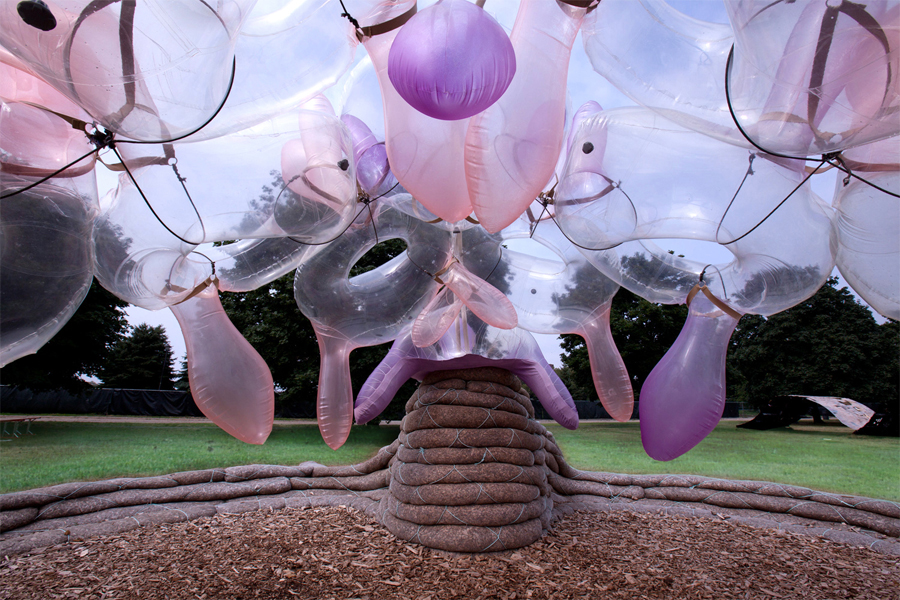
Bittertang Farm, Burble Bup, City of Dreams Pavilion, FIGMENT.
Photo: Bittertang Farm.
The Bittertang Farm, New York
Run by Antonio Torres and Michael Loverich, Bittertang is described on its website not as an architecture firm, but as a “small design farm,” where projects are “bred, coaxed, and grown to yield tasty morsels, beautiful new exotic beasts, and fertilizer for future growth.” Bittertang utilizes unconventional building materials such as hay, grass, and soil, as well as inflatables that seem more like pool toys than architectural elements.
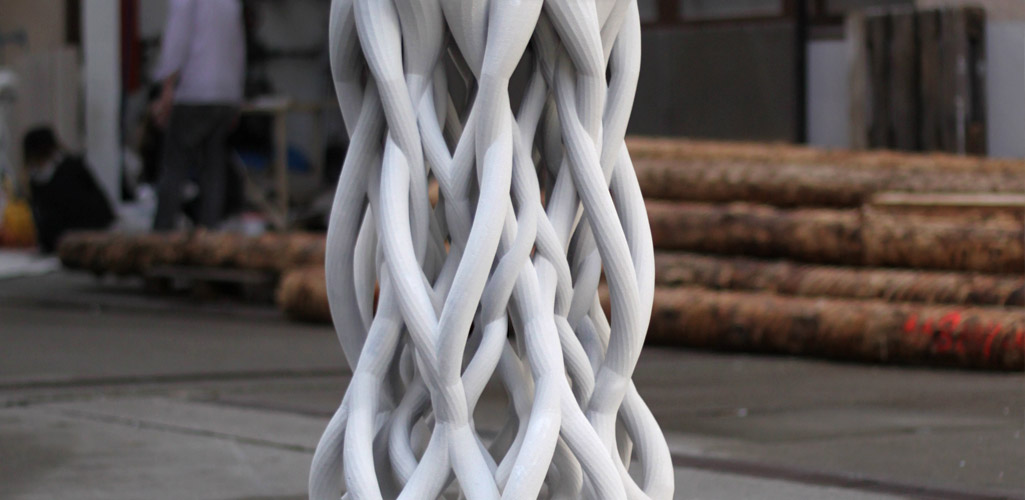
Benjamin Dillenburger, Woven Column, with Michael Hansmeyer.
Photo: Benjamin Dillenburger.
Studio Benjamin Dillenburger, Toronto
Finding new and unexpected uses for computer-operated CNC production methods, including 3D printing technology, Studio Benjamin Dillenburger constructs incredibly ornate, almost baroque structures. These high-resolution sculptural forms are extremely complex, and push the boundaries of what is possible in architecture.